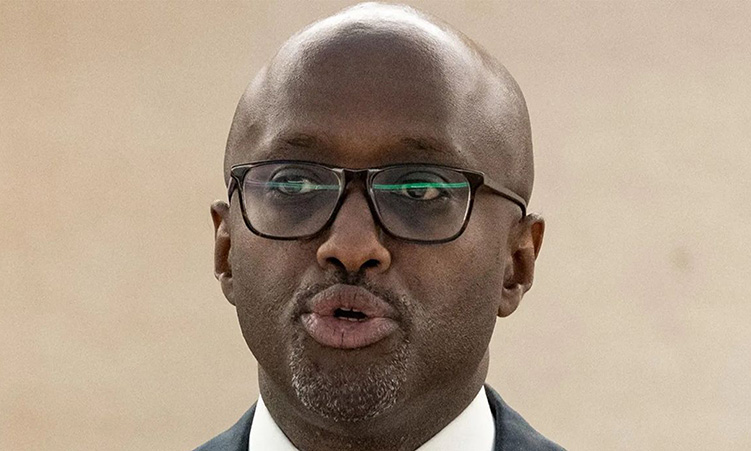THE International Monetary Fund (IMF) has cautioned against Namibia’s loose fiscal stance and has urged Government to ensure the allocated expenditure of N$25,4 billion in this year’s Budget is quality for money.
The warning comes after the IMF’s Executive Board concluded its yearly bilateral discussions with Namibia. The Article IV consultations, as it is better known, was wrapped up at the end of February, two weeks before Finance Minister Saara Kuugongelwa-Amadhila tabled her 2009-10 Budget.
‘Directors cautioned that the planned fiscal expansion is sizeable, and should not compromise the quality of spending. A less expansionary fiscal stance would allow for a more gradual increase in capital expenditure, while safeguarding fiscal sustainability,’ the IMF suggested at the time. A summary of their recommendations and take on the current shape of the Namibian economy was only released on Wednesday.
The IMF’s warning is the second of its kind in one week.
Ace economist Robin Sherbourne of the Old Mutual Group also expressed his concern about the quality of projects Government intends to pump billions into this year.
Citing examples like the N$80 million for military bases and N$340 million for military research and development, Sherbourne told a Namibian Chamber of Commerce and Industry (NCCI) gathering that Government is clearly ‘not putting a lot of effort into the quality of projects’.
The IMF stressed that the global economic and financial turmoil has worsened the near-term economic outlook, particularly for the local mining sector. The downturn in mining ‘could be more pronounced in the event of a prolonged global crisis’, the Fund warned.
Government should stick to its sound macroeconomic policies and implement structural reforms to speed up growth in the non-mining sectors to reduce unemployment and alleviate poverty, they recommended. Furthermore, Government must improve competitiveness and diversify the economy to bolster growth prospects.
On the up side, the IMF commended Government for its prudent fiscal policies in recent years, saying that it created fiscal space to support and address infrastructure needs.
The IMF also welcomed Government’s intention to include publicly guaranteed debt and central government deposits in its public debt target. However, the Fund stressed the need to keep a ‘strong and appropriately defined fiscal anchor’ in place. Government should also strengthen public financial management and revenue administration.
Commenting on the Bank of Namibia’s (BoN) monetary policy, the IMF urged the central bank to closely monitor capital outflows and maintain sufficient international reserves so that it can adjust interest rates in time if necessary.
Namibia’s international reserves, increasing to N$13,8 billion at the end of March, is in tip-top condition, BoN Governor Tom Alweendo assured this week. Capital outflows are also under control.
Turning to the banking sector, the IMF said the turbulence in international markets has had little effect on local banks so far. Commercial banks remain well capitalised with a low level of non-performing loans, they said.
‘Nonetheless, (the directors) urged the authorities to remain vigilant as the economic downturn advances in 2009, especially given a high concentration of real estate and consumer loans,’ the IMF said.
jo-mare@namibian.com.na
Stay informed with The Namibian – your source for credible journalism. Get in-depth reporting and opinions for
only N$85 a month. Invest in journalism, invest in democracy –
Subscribe Now!










